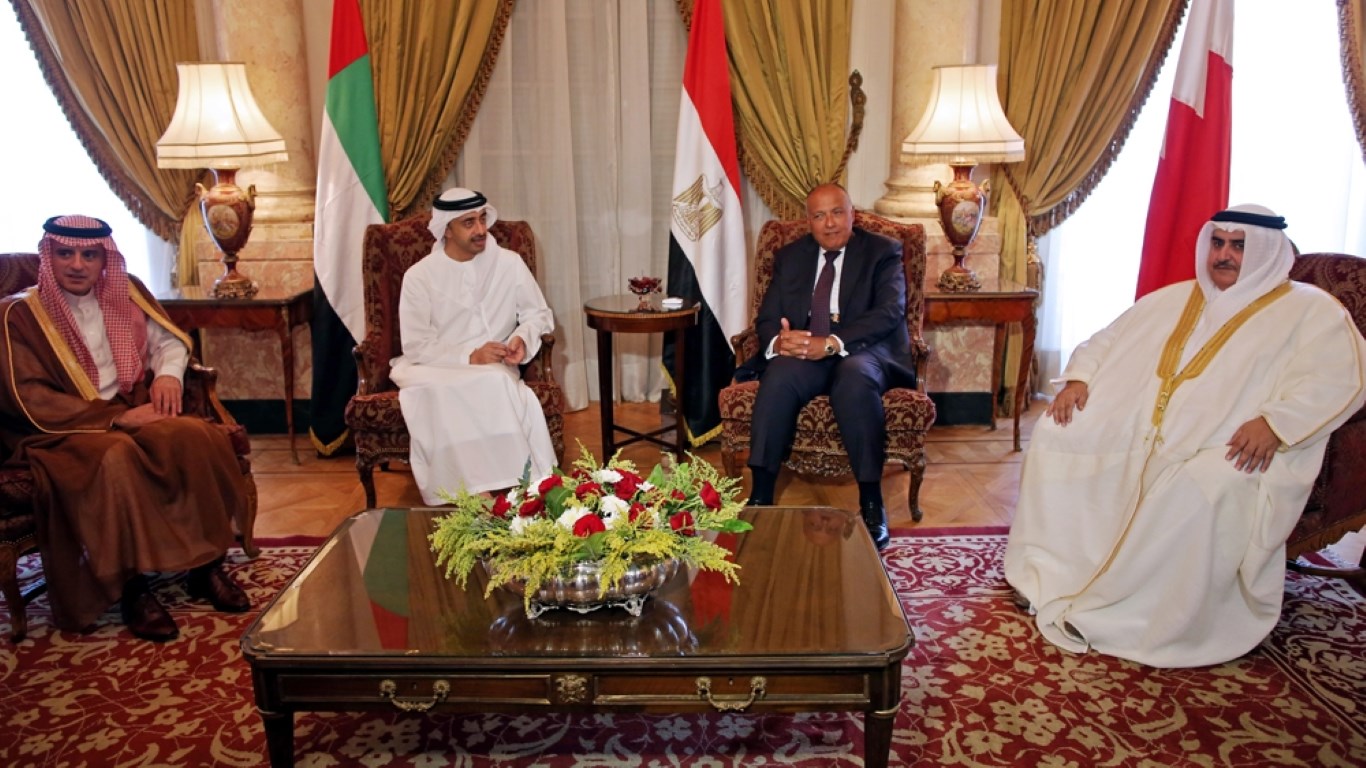Gulf in peril
July 11, 2017 | Expert Insights

According to documents obtained by CNN, Qatar signed a series of agreements in secret with its Gulf neighbors dating back to 2013 and 2014. In these, Qatar had agreed to cease support for opposition and hostile groups in those nations, including Yemen and Egypt.
While the existence of these documents has been known in the past, the nature of its content had been withheld up until now. These documents add another dimension to the ongoing stalemate between Qatar and its neighbors.
Background
It has been a month since a number of countries including Yemen, Egypt, Saudi Arabia, announced that they were severing diplomatic ties with Qatar. As a result, Qatar’s borders, airspace and even sea links have been essentially cut off.
Since then, the Saudi-led Arab bloc has sent a set of 13 demands for Qatar to comply for the blockade to be lifted. Among the demands, the bloc has called upon Qatar to reduce its ties to Iran and shut down its state-funded media house, Al-Jazeera. There is also a demand for Qatar to cut its alleged ties to al-Qaeda, Muslim Brotherhood and other Islamic militant groups.
Qatar has staunchly denied charges that is sponsors terrorist groups and refused to respond to any of the demands made by the Bloc. In addition, it has also announced its plans to hire Swiss lawyers to address the economic damage it has incurred. This commission would reportedly seek compensation from Saudi Arabia, the United Arab Emirates (UAE) and Bahrain.
Analysis
In total, six principles were agreed upon by the signatories of these agreements in 2013 & ’14. The first agreement, signed by the King of Saudi Arabia, the Emir of Qatar and the Emir of Kuwait, notes that Qatar would not interfere in the internal affairs of other Gulf nations. The agreement also states that Qatar would not support the militant group, Muslim Brotherhood. Once again, Al Jazeera has been alluded as being “antagonist media” to other Gulf nations.
These deals have come to be known as the “Riyadh Agreement.”
In response to these documents being made public, Qatar said that these deals had little to do with the stand-off that has occurred in 2017. Sheikh Saif Bin Ahmed Al-Thani, director of Qatar's government communication office in a statement noted, “A full reading of that text will show that the intent of the 2013/14 agreements was to ensure that sovereign GCC nations be able cooperate within a clear framework…at no point did Saudi Arabia or the UAE use the mechanisms in the Riyadh agreement to communicate their concerns to Qatar.”
Saudi Arabia and its allies for their part have dug in their positions and said that their own demands are not negotiable.
In midst of the stalemate, Kuwait as well as the United States have urged all parties involved to seek a swift resolution. US Secretary of State Rex Tillerson is currently on a four-day tour to the Gulf and is holding talks with Kuwait. He will also be visiting Qatar and Saudi Arabia.
Assessment
Our assessment is that the region has become increasingly unstable due to this crisis and this instability could be exploited by external forces. As we mentioned earlier it would be less helpful to box Qatar into submission if both parties have to find a workable solution. The region still provides for more than fifty percent of the world’s energy resources and this makes it all the more important for all stakeholders to de-escalate present conflicts.








Comments